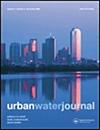Deciphering and predict corrosion effect, influencing factors and microbial mechanism of sewer concrete corrosion based on extensive data analysis and machine learning
IF 1.6
3区 环境科学与生态学
Q3 WATER RESOURCES
引用次数: 0
Abstract
ABSTRACT This study investigated the effect of environmental parameters on microbial-induced concrete corrosion during three corrosion stages. The corrosion effects and influencing factors in three corrosion stages were deeply analyzed and predicted, and the mechanism of microbial corrosion was summarized. When the H2S concentration was lower than about 15.0 mg/m3, the corrosion was maintained in stage II, which greatly delays the intensification of corrosion. In stage III, the H2S concentration has the significantly accelerate the corrosion rate. Additionally, incorporating min, max and mean values of input parameters greatly improved the accuracy of machine learning predictions of corrosion rates (R2 >0.99). Acidithiobacillus was found to be dominant in the microbial community at H2S concentrations of 12.0–37.5 mg/m3, and increased temperature promoted the reproduction of Acidithiobacillus.基于广泛的数据分析和机器学习,解读和预测下水道混凝土腐蚀效果、影响因素和微生物机制
摘要本研究考察了三个腐蚀阶段环境参数对微生物诱导混凝土腐蚀的影响。深入分析和预测了三个腐蚀阶段的腐蚀效果和影响因素,总结了微生物腐蚀的机理。当H2S浓度低于约15.0时 mg/m3,腐蚀保持在第二阶段,这大大延缓了腐蚀的加剧。在第三阶段,H2S浓度显著加快了腐蚀速率。此外,结合输入参数的最小值、最大值和平均值大大提高了机器学习预测腐蚀速率的准确性(R2>0.99)。在H2S浓度为12.0–37.5时,酸性硫杆菌在微生物群落中占主导地位 mg/m3和升高的温度促进了酸性硫杆菌的繁殖。
本文章由计算机程序翻译,如有差异,请以英文原文为准。
求助全文
约1分钟内获得全文
求助全文
来源期刊

Urban Water Journal
WATER RESOURCES-
CiteScore
4.40
自引率
11.10%
发文量
101
审稿时长
3 months
期刊介绍:
Urban Water Journal provides a forum for the research and professional communities dealing with water systems in the urban environment, directly contributing to the furtherance of sustainable development. Particular emphasis is placed on the analysis of interrelationships and interactions between the individual water systems, urban water bodies and the wider environment. The Journal encourages the adoption of an integrated approach, and system''s thinking to solve the numerous problems associated with sustainable urban water management.
Urban Water Journal focuses on the water-related infrastructure in the city: namely potable water supply, treatment and distribution; wastewater collection, treatment and management, and environmental return; storm drainage and urban flood management. Specific topics of interest include:
network design, optimisation, management, operation and rehabilitation;
novel treatment processes for water and wastewater, resource recovery, treatment plant design and optimisation as well as treatment plants as part of the integrated urban water system;
demand management and water efficiency, water recycling and source control;
stormwater management, urban flood risk quantification and management;
monitoring, utilisation and management of urban water bodies including groundwater;
water-sensitive planning and design (including analysis of interactions of the urban water cycle with city planning and green infrastructure);
resilience of the urban water system, long term scenarios to manage uncertainty, system stress testing;
data needs, smart metering and sensors, advanced data analytics for knowledge discovery, quantification and management of uncertainty, smart technologies for urban water systems;
decision-support and informatic tools;...
 求助内容:
求助内容: 应助结果提醒方式:
应助结果提醒方式:


